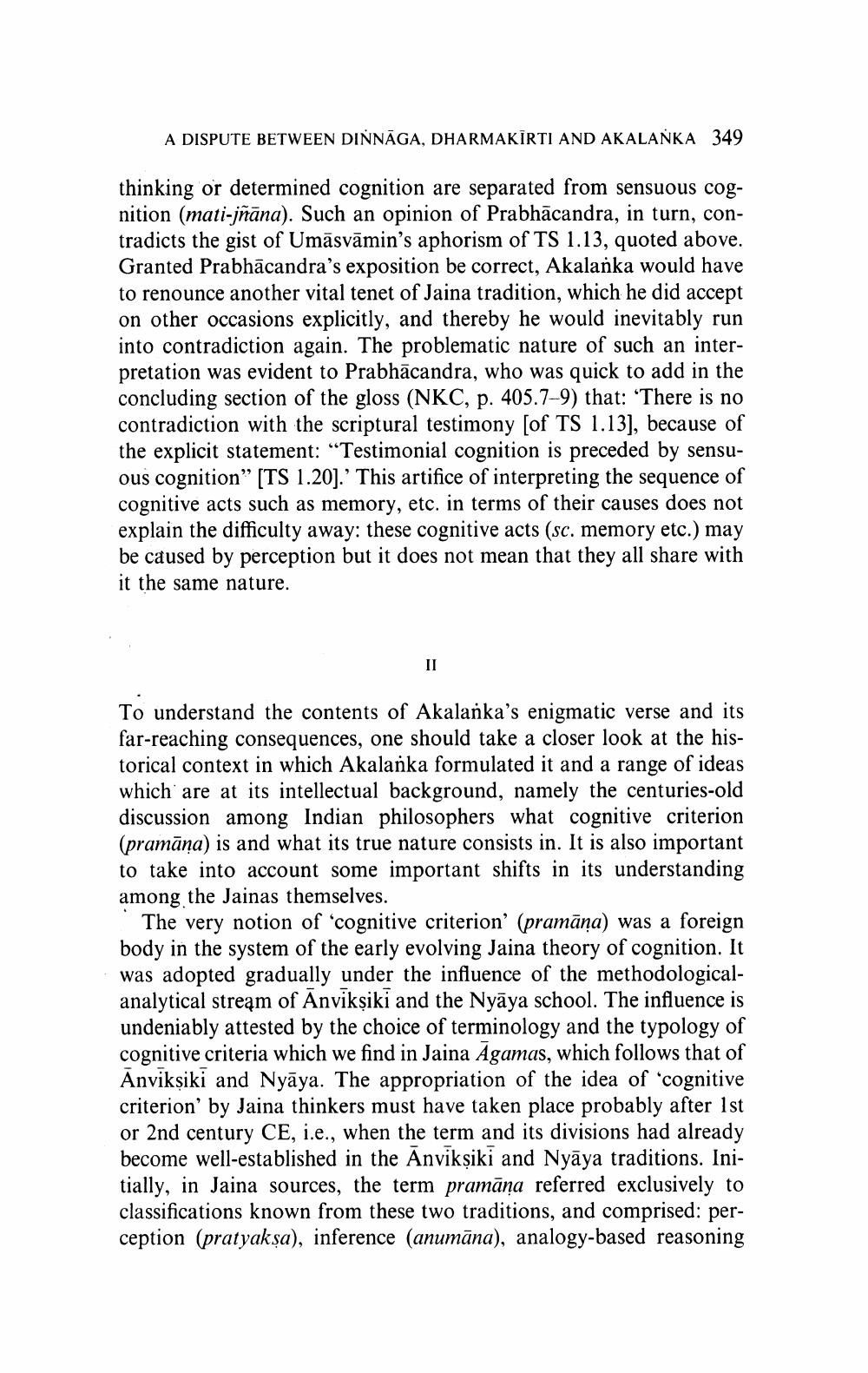Book Title: Pramanas And Language Dispute Between Dinnaga Dharmakirti And Akalanka Author(s): Piotr Balcerowicz Publisher: Piotr Balcerowicz View full book textPage 7
________________ A DISPUTE BETWEEN DINNĀGA, DHARMAKIRTI AND AKALANKA 349 thinking or determined cognition are separated from sensuous cognition (mati-jñāna). Such an opinion of Prabhācandra, in turn, contradicts the gist of Umāsvāmin's aphorism of TS 1.13, quoted above. Granted Prabhācandra's exposition be correct, Akalanka would have to renounce another vital tenet of Jaina tradition, which he did accept on other occasions explicitly, and thereby he would inevitably run into contradiction again. The problematic nature of such an interpretation was evident to Prabhācandra, who was quick to add in the concluding section of the gloss (NKC, p. 405.7-9) that: 'There is no contradiction with the scriptural testimony [of TS 1.13], because of the explicit statement: "Testimonial cognition is preceded by sensuous cognition” [TS 1.20).' This artifice of interpreting the sequence of cognitive acts such as memory, etc. in terms of their causes does not explain the difficulty away: these cognitive acts (sc. memory etc.) may be caused by perception but it does not mean that they all share with it the same nature. To understand the contents of Akalanka's enigmatic verse and its far-reaching consequences, one should take a closer look at the historical context in which Akalanka formulated it and a range of ideas which are at its intellectual background, namely the centuries-old discussion among Indian philosophers what cognitive criterion (pramāna) is and what its true nature consists in. It is also important to take into account some important shifts in its understanding among the Jainas themselves. The very notion of cognitive criterion' (pramāna) was a foreign body in the system of the early evolving Jaina theory of cognition. It was adopted gradually under the influence of the methodologicalanalytical stream of Anvikșiki and the Nyāya school. The influence is undeniably attested by the choice of terminology and the typology of cognitive criteria which we find in Jaina Āgamas, which follows that of Anvikșiki and Nyāya. The appropriation of the idea of 'cognitive criterion' by Jaina thinkers must have taken place probably after 1st or 2nd century CE, i.e., when the term and its divisions had already become well-established in the Anvikșiki and Nyāya traditions. Initially, in Jaina sources, the term pramāna referred exclusively to classifications known from these two traditions, and comprised: perception (pratyaksa), inference (anumāna), analogy-based reasoningPage Navigation
1 ... 5 6 7 8 9 10 11 12 13 14 15 16 17 18 19 20 21 22 23 24 25 26 27 28 29 30 31 32 33 34 35 36 37 38 39 40 41 42 43 44 45 46 47 48 49 50 51 52 53 54 55 56 57 58
